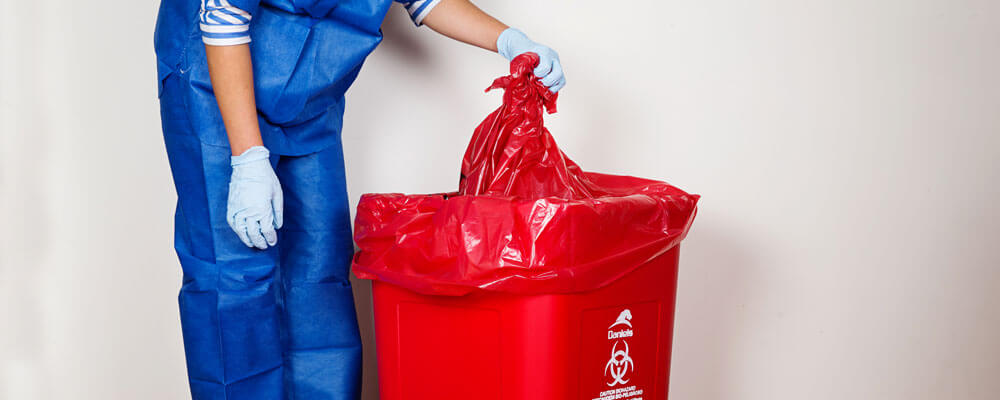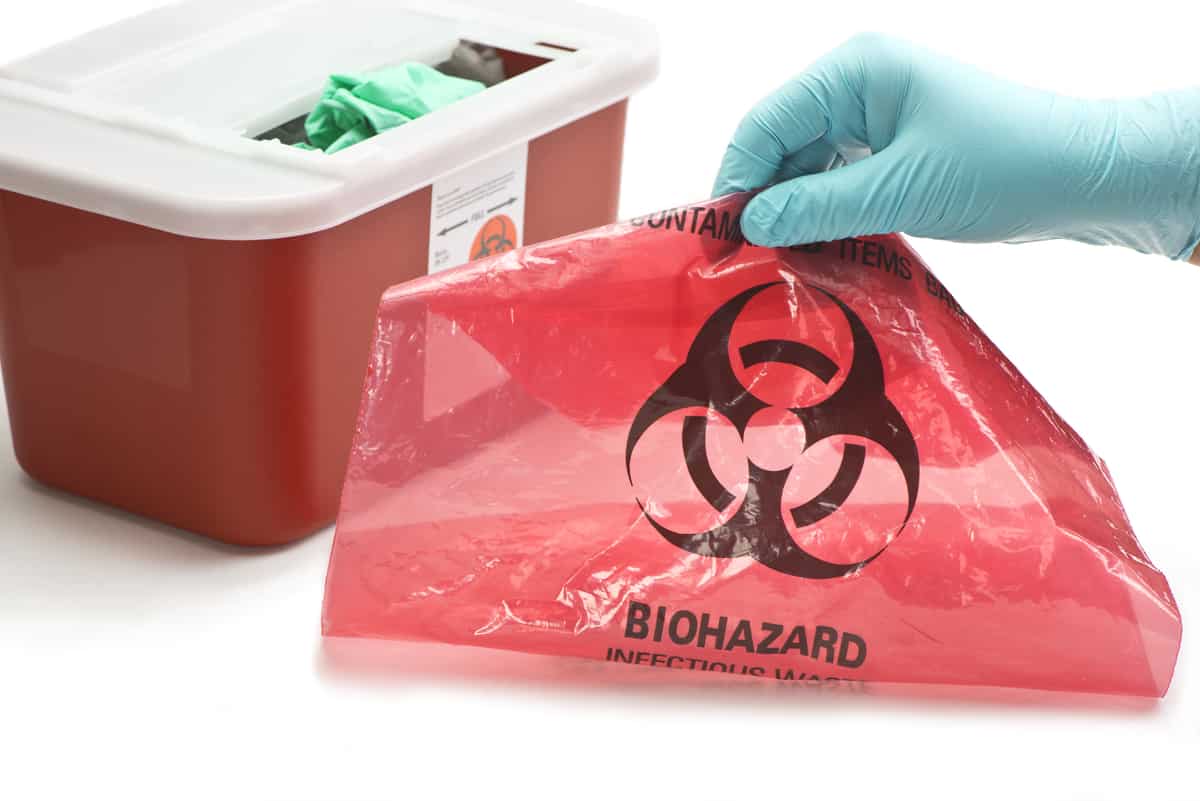Safeguarding Wellness: Specialist Medical Waste Removal Services for a Tidy Atmosphere
Safeguarding Wellness: Specialist Medical Waste Removal Services for a Tidy Atmosphere
Blog Article
Stay Ahead of Laws: Professional Suggestions on Medical Garbage Disposal
In a world where the health care industry is constantly developing, it is imperative for medical centers to stay ahead of policies when it comes to the appropriate disposal of clinical waste. With rigorous guidelines and frequent governing changes, it can be testing to browse the intricacies of this procedure. Nevertheless, with experienced advice, centers can make sure compliance and reduce dangers related to improper waste disposal. From comprehending the different categories of medical waste to executing the ideal collection and segregation techniques, this conversation will give actionable tips and useful understandings to help centers stay in advance of regulations in the ever-changing landscape of medical waste disposal.
Recognizing Clinical Waste Categories
Recognizing clinical waste groups is important for proper disposal and management in healthcare facilities. Clinical waste describes any kind of waste produced by health care tasks that may position a danger to public health and wellness or the atmosphere. It is important to classify clinical waste properly to guarantee its safe handling, treatment, transport, and disposal.
There are a number of classifications of clinical waste that medical care facilities need to be accustomed to. One of the most common groups consist of infectious waste, pathological waste, sharps waste, pharmaceutical waste, and chemical waste. Each category has certain guidelines and guidelines for its appropriate administration and disposal.
Contagious waste consists of materials contaminated with blood or various other physical liquids, such as handwear covers, gowns, and research laboratory societies. Pathological waste describes human cells, body organs, or body components that require special handling and disposal. Sharps waste consists of utilized needles, syringes, and other sharp items that can trigger injury and send infections. Drug waste makes up expired, extra, or infected medicines that need mindful handling and disposal. Chemical waste consists of solvents, anti-bacterials, and other chemical materials made use of in health care facilities.
Remaining Up-To-Date With Regulatory Changes
Staying current with regulative adjustments is crucial for healthcare centers to make certain compliance and correct administration of clinical waste disposal. medical waste removal services. With guidelines frequently evolving, it is necessary for medical care facilities to stay current to avoid charges, fines, and possible harm to the environment and public health and wellness
To remain ahead of governing adjustments, health care facilities ought to establish a system for monitoring and tracking updates. This can be done by registering for regulative newsletters, going to meetings and workshops, and actively taking part in market associations. In addition, facilities ought to designate a team member or group responsible for remaining informed and disseminating information to appropriate stakeholders.
Normal communication with regulative agencies is likewise vital. Medical care facilities must develop relationships with local, state, and government companies to ensure they know any kind of adjustments in guidelines that might impact their waste management techniques. This can be done through routine conferences, involvement in public remark periods, and positive interaction with regulatory agencies.
Furthermore, health care facilities must think about partnering with waste monitoring firms that focus on medical waste disposal (medical waste disposal services with WasteX). These firms are commonly skilled in the most recent policies and can supply advice and support to make certain compliance
Executing Correct Collection and Partition Approaches
To properly manage clinical waste disposal, healthcare facilities should establish appropriate collection and partition methods based on regulatory guidelines. Implementing these techniques makes certain the risk-free handling and disposal of possibly hazardous products, shields the setting, and decreases the threat of infections and injuries to health care workers and the general public.
Correct collection and partition approaches include the use of assigned medical waste disposal services with WasteX containers and labeling systems. Health care centers should supply clearly labeled containers for various kinds of clinical waste, such as sharps, contagious waste, pharmaceutical waste, and non-hazardous waste. These containers need to be color-coded and plainly marked to prevent complication and advertise simple recognition.
In addition, health care facilities should train their staff on the proper procedures for accumulating and setting apart medical waste. This includes informing them on the different kinds of waste, the suitable containers to utilize, and the significance of following policies and guidelines. Routine training sessions and refresher course programs should be conducted to make sure that personnel members remain updated on finest techniques.
Furthermore, health care facilities must establish a system for normal collection and disposal of clinical waste. This might entail partnering with qualified waste monitoring business that focus on clinical waste disposal. These firms will certainly ensure that the gathered waste is carried and gotten rid of in compliance with regulative needs.
Selecting the Right Disposal Methods

Incineration is among the most efficient and typical methods for throwing away specific kinds of clinical waste, such as pathological waste and sharps. It includes the controlled burning of waste at heats, minimizing it to ash. Nonetheless, incineration can release damaging contaminants into the air and add to air contamination.

Other disposal methods consist of chemical therapy, microwave therapy, and landfilling. Chemical therapy entails the use of chemicals to sanitize and counteract the waste. Microwave therapy makes use of microwave energy to here warmth and disinfect the waste. Landfilling involves hiding the waste in an assigned garbage dump area (medical waste disposal services with WasteX). However, landfilling must be the last resort because of the potential danger of contamination to soil and groundwater.
Ensuring Conformity With Documents and Training
After very carefully thinking about the proper disposal methods for medical waste, medical care facilities must guarantee compliance with guidelines and minimize ecological influence by applying effective documentation and training procedures. This action is critical in maintaining a secure and sustainable setting for both medical care employees and the public.

Healthcare employees who handle clinical waste ought to obtain ideal training on waste segregation, taking care of, and disposal treatments. By supplying comprehensive training, medical care facilities can empower their personnel to make enlightened choices and decrease the danger of incorrect waste disposal.
Conclusion
In conclusion, remaining in advance of guidelines in clinical waste disposal is essential for medical care centers. medical waste removal services. Understanding the various classifications of medical waste, remaining updated with regulatory adjustments, applying appropriate collection and segregation approaches, selecting the appropriate disposal approaches, and making sure compliance with documentation and training are all essential actions. By complying with these guidelines, healthcare companies can successfully dispose and take care of of clinical waste in a liable and risk-free manner
From understanding the different groups of medical waste to executing the best collection and segregation techniques, this discussion will supply actionable suggestions and useful understandings to assist centers remain in advance of regulations in the ever-changing landscape of medical waste disposal. - medical waste disposal services with WasteX
The most usual classifications include transmittable waste, pathological waste, sharps waste, pharmaceutical waste, and chemical waste. Healthcare centers should offer plainly classified containers for different types of medical waste, such as sharps, infectious waste, pharmaceutical waste, and non-hazardous waste. Medical care centers ought to establish an extensive system to videotape and track all facets of medical waste disposal, consisting of types of waste produced, quantities, and disposal techniques utilized. Health care workers who take care of medical waste ought to obtain proper training on waste partition, taking care of, and disposal treatments.
Report this page